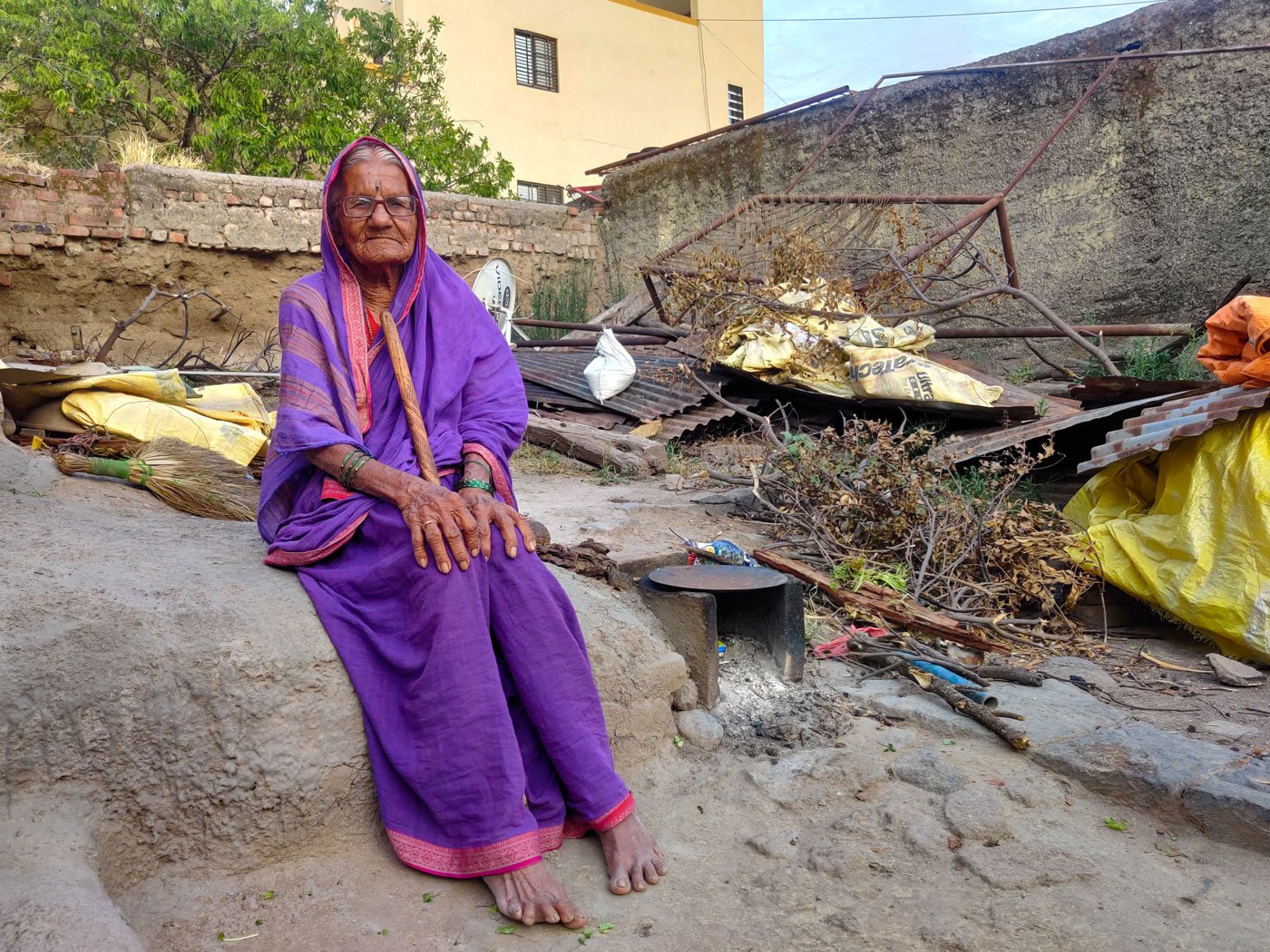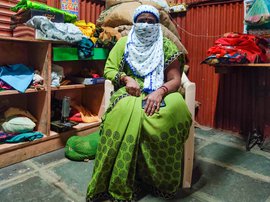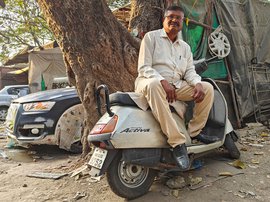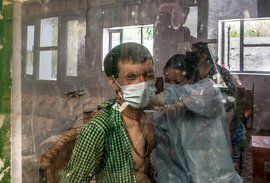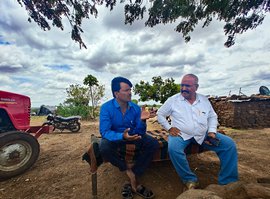Mahendra Phutane left home on the morning of May 5 to get his first dose of the Covid-19 vaccine. He returned 12 days later. “It was supposed to be an exciting day,” he says. “It turned out to be a nightmare instead.”
Before Mahendra could get his shot at the vaccination centre, the police locked him up.
A resident of Neknoor village in Maharashtra’s Beed district, Mahendra, 43, had managed to book an appointment on the CoWIN platform after persistent efforts. “I received an SMS confirming the appointment between 9 and 11 in the morning [on May 5],” he says. He got a slot for himself and some family members – all under 45 years old. “We were looking forward to getting our first dose. The second wave of Covid-19 has been scary,” says Mahendra.
When the family reached the centre in Beed city, 25 kilometres from Neknoor, their hopes were crushed. Vaccination of the 18-44 age group had stopped due to a shortage of vaccines at the centre. “Police were stationed there,” says Mahendra. “We showed them the message confirming our appointment. But they responded rudely.”
An argument broke out between the police and those waiting in the queue. It ended up in a lathi charge and six people were taken into custody, including Mahendra, his son Parth, brother Nitin and a cousin, Vivek.
In the First Information Report (FIR) of the incident filed by Anuradha Gawhane, a constable who was at the centre, the six are accused of disrupting the queue and manhandling police personnel. The FIR says that they abused and humiliated the constables and attacked them. Eleven charges have been listed, including unlawful assembly, rioting, causing harm to a public servant, and breach of peace.
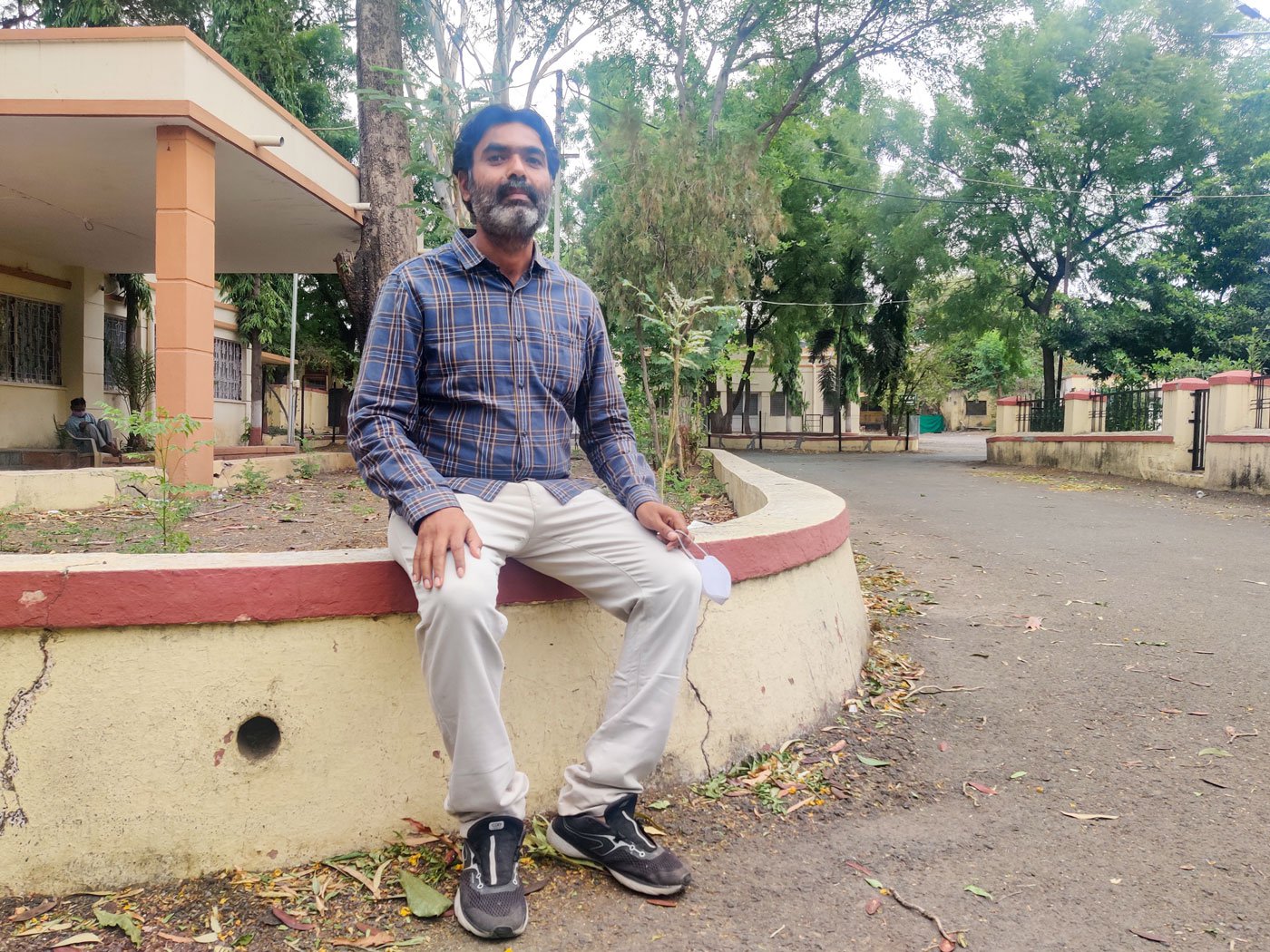
Mahendra Phutane was given an appointment for getting vaccinated, but he couldn't get the first dose because of a shortage of vaccines
But Mahendra denies the charges. “There was an argument, but the police used force first. They beat us up in the police station as well,” he says. They didn’t even spare Nitin, 39, who suffers from schizophrenia, Mahendra adds. “They beat him too. He has been depressed since the incident. We have to keep an eye on him. He tried to slash his wrist in jail.”
On May 17, after they were released on bail, Mahendra showed me photographs of his injuries. The black and blue marks, he says, were from the lathi charge of May 5. “It was all so unnecessary,” he says. “If they didn’t have enough vaccines, why did they open it up for us in the first place?”
Shortage of vaccines has marred the Covid-19 vaccination drive in India that began in a phased manner on January 16, 2021. Healthcare workers and frontline workers were the first to be inoculated.
From March 1, everyone aged 60 or more became eligible for vaccines. But the problem started in April when those aged 45 to 59 began getting the vaccines – the number of doses fell short.
Blaming the shortage on unfair distribution of vaccines by the Centre, Maharashtra’s health minister, Rajesh Tope, told the Press Trust of India, “Maharashtra has been given 7.5 lakh vaccine dosages on Thursday [April 8]. While Uttar Pradesh was given 48 lakh doses, Madhya Pradesh 40 lakh, Gujarat 30 lakh and Haryana 24 lakh doses.” The state had the highest number of active cases and was administering the most number of vaccines in the country.
Vaccine shortage persisted through April and May in the state. Within days of the vaccines being available to the 18-44 age group (from May 1), the process was paused. The state government had decided to use the available vaccines to continue inoculating the older age groups.
The pace of vaccination has been sluggish in the hinterland because of vaccine scarcity.
As of May 31, only 14.4 per cent – about 2.94 lakh people – had received their first vaccine doses in Beed district. A mere 4.5 per cent had received both the doses
Beed aims to vaccinate 20.4 lakh people across all age groups, says Sanjay Kadam, district immunisation officer. As of May 31, 14.4 per cent – about 2.94 lakh people – had received their first doses. A mere 4.5 per cent, 91,700 people, had received both the doses.
Of the 9.1 lakh aged 45 or above, 25.7 per cent have received the first dose, but only 7 per cent have had the second. Among 11 lakh people in the 18-44 age group in Beed, only 11,700 – about 1 per cent – had received their first dose by May 31.
While Covishield and Covaxin vaccines are both being administered in Maharashtra, the majority of doses are of Covishield. Beed’s vaccination centres, which are government-run, receive the vaccines from the state’s quota and give them free to beneficiaries.
But 400 kilometres away, private hospitals in Mumbai are charging Rs. 800-1,500 for a single dose. The rich and urban middle-class are paying a premium to get vaccinated. They are paying 16-66 per cent more than the procurement cost of Covishield and 4 per cent extra for Covaxin, says a report in the Indian Express .
Allowing private hospitals to purchase 25 per cent of the vaccines produced in the country is a part of the union government’s new national vaccination strategy , which came into effect on May 1. The doses procured by private hospitals are mainly being used for the 18-44 age group.
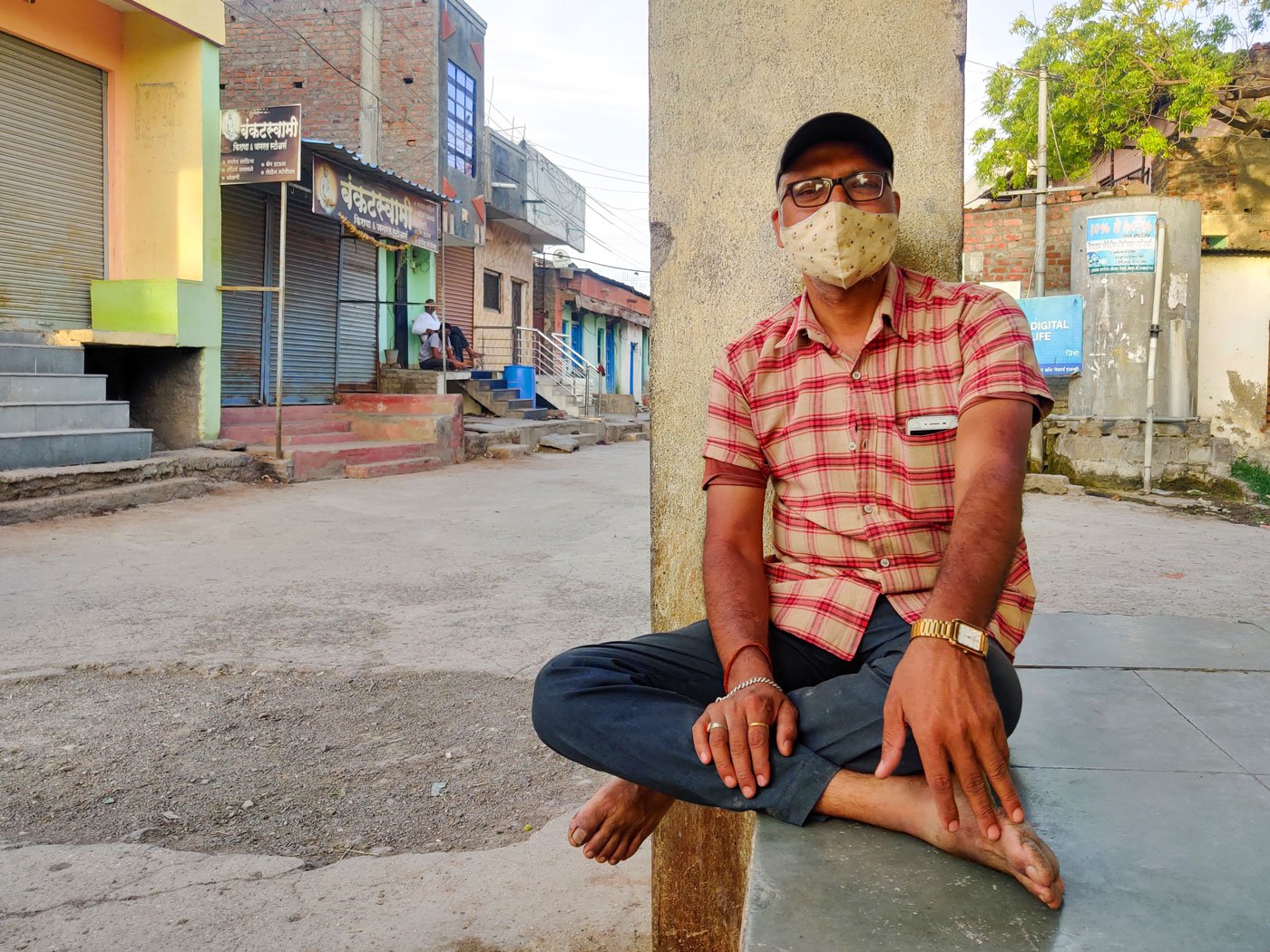
At first, Prasad Sarvadnya was hesitant to get vaccinated. He changed his mind when cases of Covid-19 started increasing in Beed
However, the Supreme Court of India has come down heavily on the Centre’s vaccination strategy. On June 2, the court remarked that the states’ 25 per cent quota, the same as of private hospitals, “is extremely disproportionate and not in touch with societal realities.” If the states are to bear the burden of vaccinating a majority of its people, the court said, “the quota available to the private hospitals must be reduced.”
Unequal internet access between urban and rural areas has led to unequal vaccination of the 18-44 group, who can only get appointments through the CoWIN platform. The Supreme Court noted: “A vaccination policy exclusively relying on a digital portal for vaccinating a significant population of this country between the ages of 18-44 years would be unable to meet its target of universal immunization owing to such a digital divide.”
Just 18.5 per cent of rural households in Maharashtra had any internet facility, the National Sample Survey recorded in 2017-18 . And merely 1 in 6 people in rural Maharashtra had the “ability to use Internet.” Among women, that was 1 in 11.
At this rate, the tech-savvy, and rich and urban middle-class Indians would be protected if and when the third wave of the pandemic hits. “But people in places like Beed will remain vulnerable to the pandemic,” says Dr. Rajkumar Galande, former civil surgeon at Osmanabad District Hospital.
Galande believes many would be at risk if the pace of vaccination does not pick up. “It is more precarious in rural areas because the health infrastructure is not as good as in urban areas,” he says. “To stop the spread of Covid-19, we must saturate our villages with vaccines.”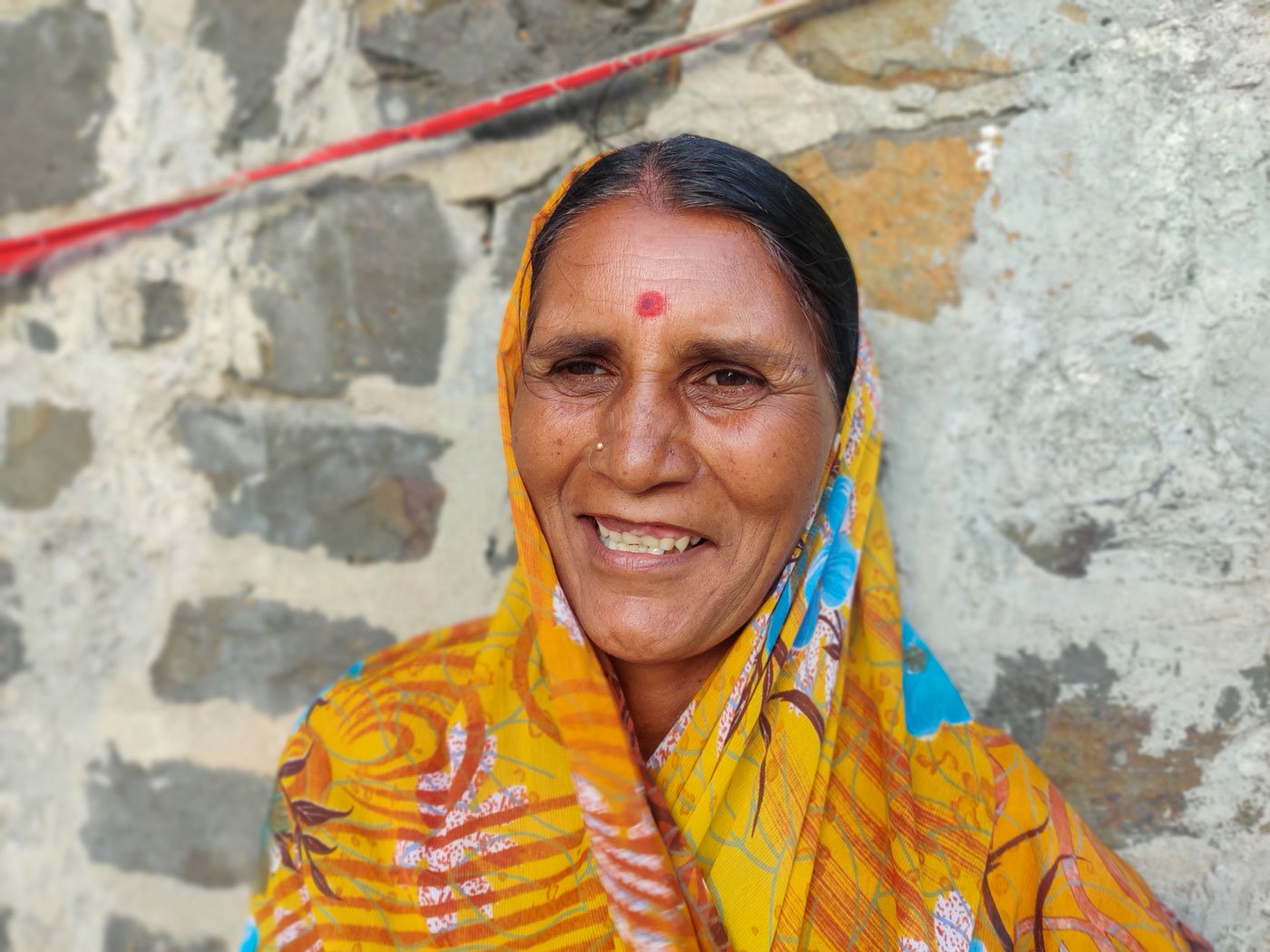
Sangeeta Kale, a 55-year-old farmer in Neknoor village, hasn't taken the vaccine because she's afraid of falling ill afterwards
While urgency may be missing at the government level, people in Beed are feeling it. “People were initially hesitant and unsure. So was I,” says Prasad Sarvadnya, 48, a farmer with 18 acres of land in Neknoor. “When you hear how fever and body ache can be a sign of Covid, and then you get to know that you might get a fever after getting vaccinated, you don’t want that,” he explains.
But when cases started increasing around end of March, people panicked, says Prasad. “Now everybody wants to get vaccinated.”
In late March, when he went to the vaccination centre, about five kilometres from his village, Prasad saw a crowd of people eager to get their shots. Physical distancing was out of the question. “Nobody uses CoWIN here. Even people with smartphones find it difficult to book a slot,” he says. “We walk in to the centre with our Aadhaar cards and get an appointment.”
Prasad got the first dose after waiting for some hours. A few days later, he came to know that some people who were at the centre with him tested positive for Covid-19. “That got me worried,” he says. “I had fever, but it could have been because of the vaccine. When it didn’t subside after three days, I got myself tested. The result was positive. Thankfully, I recovered without any trouble.” He got his second vaccine dose in the second week of May.
Vaccination centres in Beed are now issuing tokens – about 100 a day – to avoid crowding. It has hardly helped, says 55-year-old Sangeeta Kale, who cultivates soyabean and tur on her five-acre land in Neknoor. “Earlier, the crowd gathered for vaccines. Now they gather for tokens,” she says. “It’s just that people disperse once the tokens are distributed. So the crowding is limited to a few hours in the morning instead of the whole day.”
Sangeeta is yet to get her first dose because she’s scared. She would have to go to the centre at 6 a.m. to get a token. “A lot of people queue up early in the morning, it’s scary. I haven’t taken my first dose yet because I am scared of the fever I might get later.”
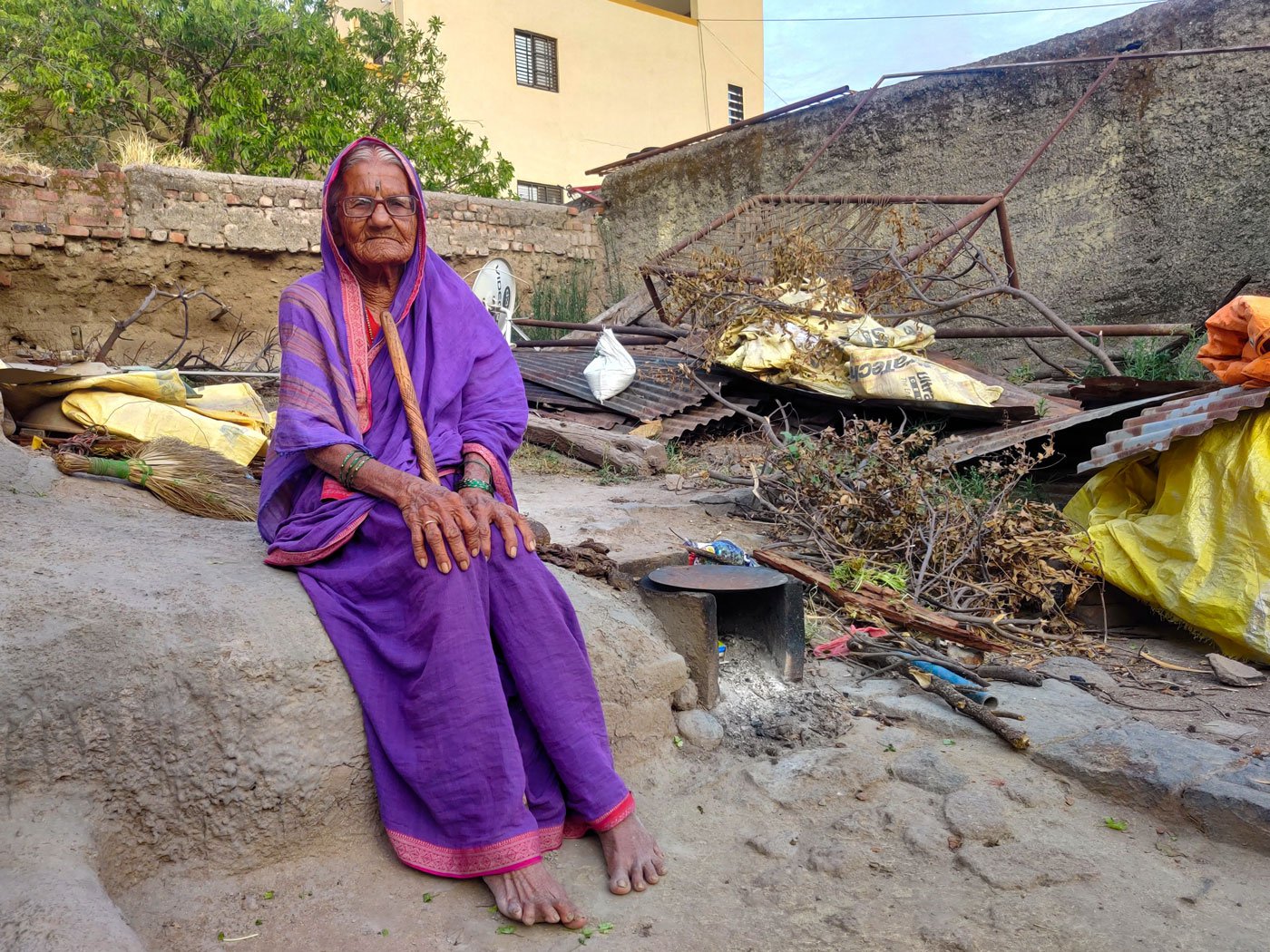
Waiting to get her second dose, Rukmini Shinde, 94, has been allaying her neighbours' fears of the Covid-19 vaccines
“Nothing will happen,” Sangeeta’s neighbour Rukmini Shinde tells her. “You might get a little body ache. But that’s it. I didn’t get even that.”
Rukmini is 94, and she has her century in sight. “Six more years to 100,” she tells me when I ask her how old she is. She got her first vaccine dose in mid-April. “I am now waiting to get my second one. They have increased the gap between the two doses now,” she tells me.
The gap between two doses of Covishield was increased in the second week of May, from 6-8 weeks to 12-16 weeks. The union government took the decision based on new studies that observed better efficacy from a longer interval between doses. It also gives manufacturers and governments more time to produce and administer the vaccine.
But the pace of vaccination needs to pick up, and soon.
Beed has 350 vaccination centres set up across the district. An auxiliary nurse midwife (ANM) could vaccinate 300 people per day at each centre, says a district official on condition of anonymity. “If we appoint an ANM at each vaccination point, we can vaccinate 1.05 lakh people a day,” he says. “But because there aren’t enough vaccines, we manage an average of 10,000 per day.”
“If it continues like this, it would take an entire year to cover the district’s population,” the official says. “And the third wave is supposed to be just months away.”
Postscript: In his address to the nation at 5 p.m.on June 7, Prime Minister Narendra Modi announced changes to the national vaccination strategy. The Centre will take over the states’ quota of vaccine procurement and now buy 75 per cent of the vaccines produced in the country. Private hospitals will continue to get their 25 per cent quota. The states will receive vaccines from the Centre, but the PM did not clarify if current distribution criteria will change. All adults (18 years and above) will receive vaccines free of cost at government-run centres, while private hospitals will be allowed to add only up to Rs. 150 to the vaccine's cost as a service charge. The new policy will come into effect on June 21, the PM said. "The CoWIN platform is being appreciated," he added.
